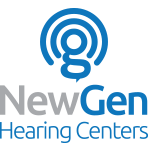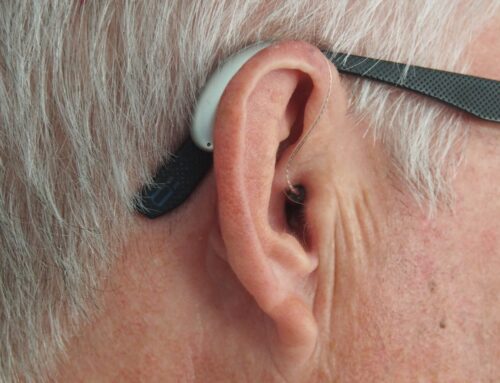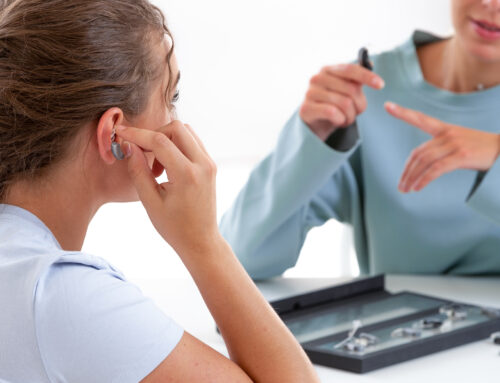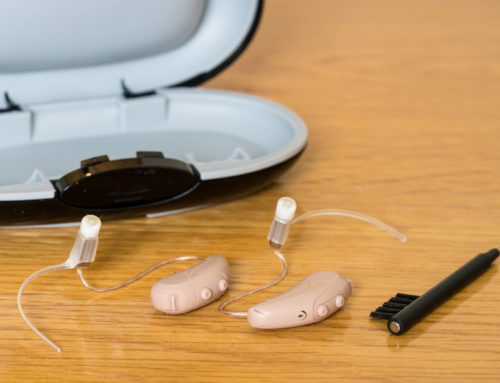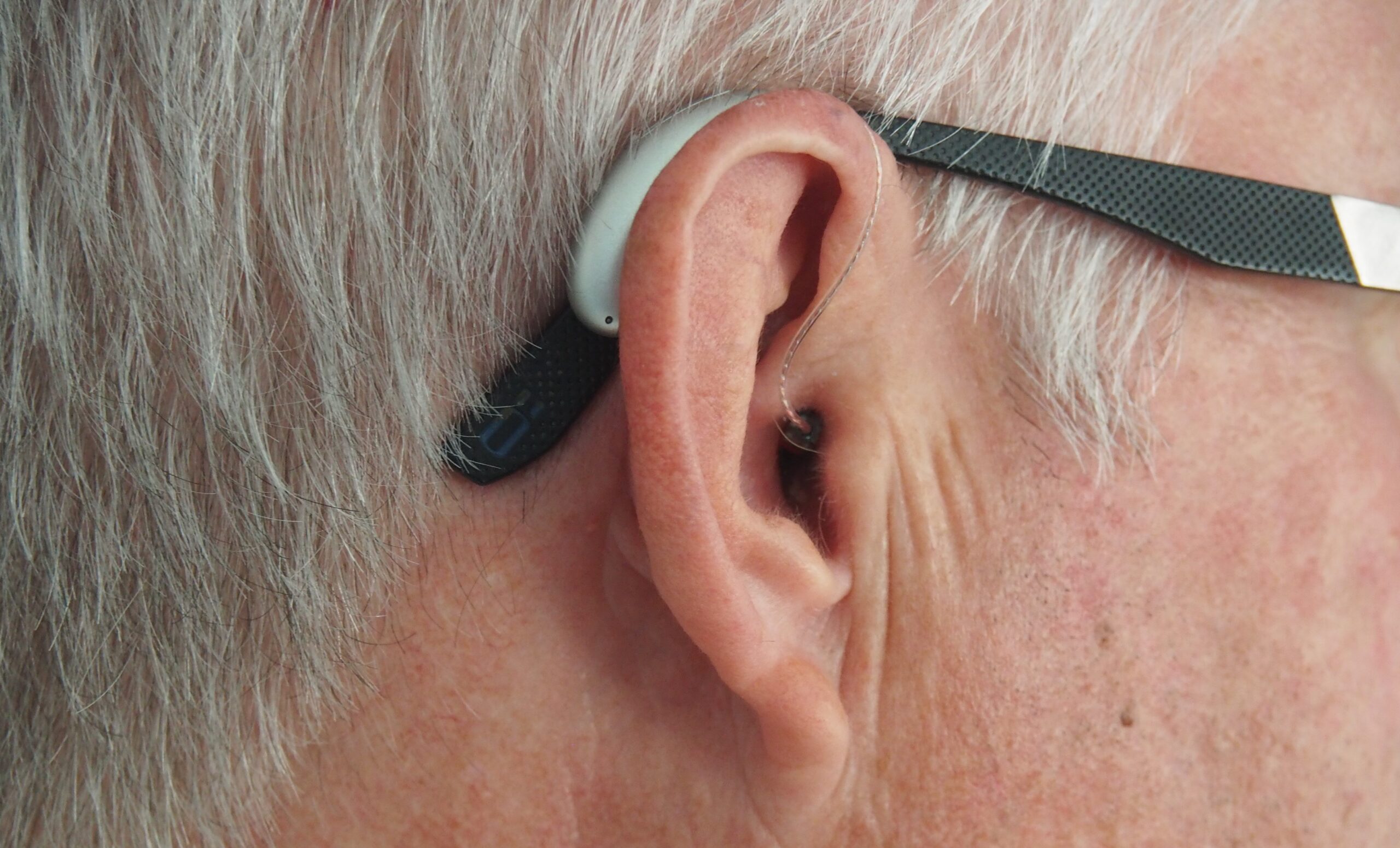
Hearing loss is a prevalent condition that affects millions of individuals worldwide. It can significantly impact a person’s quality of life, communication abilities, and overall well-being.
Here in the United States, over 15% of American adults report some sort of trouble hearing, according to data from the National Institute on Deafness and Other Communication Disorders (NIDCD).
Fortunately, audiologists play a crucial role in diagnosing and treating hearing loss, offering a wide range of services designed to address the unique needs of individuals with auditory impairments.
This blog post explores the indispensable role of audiologists in treating hearing loss, focusing on the comprehensive services they provide, including hearing tests, fitting and adjusting hearing aids, and providing counseling and support to individuals and their families.
Hearing Tests: The First Step Towards Diagnosis
An audiologist is an extensively trained professional who specializes in assessing hearing abilities. The initial step in treating hearing loss is conducting comprehensive hearing tests.
These tests involve evaluating various aspects of hearing, including the measurement of hearing thresholds, speech understanding abilities, and identifying specific types of hearing loss.
By analyzing the results of the hearing tests, audiologists can recommend suitable interventions such as hearing aids, cochlear implants, or auditory rehabilitation programs.
Early detection through hearing tests enables timely intervention, preventing further deterioration and enhancing the overall quality of life.
Fitting and Adjusting Hearing Aids: Tailored Solutions for Improved Hearing
One of the primary services that audiologists offer is the fitting and adjustment of hearing aids.
Hearing aids are sophisticated devices designed to amplify sound and enhance an individual’s hearing and communication ability.
Audiologists are experts in selecting the most appropriate hearing aids based on an individual’s specific needs, lifestyle, and preferences. They will consider factors such as the type and degree of hearing loss, cosmetic concerns, and budgetary considerations to ensure the best possible outcome.
Through personalized fittings, audiologists ensure that hearing aids provide maximum comfort, optimal sound quality, and effective noise reduction.
Moreover, audiologists perform regular adjustments and fine-tuning of hearing aids to optimize their performance and address any individual concerns or challenges faced by the individual wearing the hearing aids.
Counseling and Support: Empowering Individuals and Their Families
The emotional and psychological impact of hearing loss is significant for individuals and their families. Thankfully, an audiologist can play a vital role in providing counseling and support to both.
An audiologist can offer guidance on coping strategies, communication techniques, and how to integrate hearing aids into daily life effectively. Audiologists also provide valuable education about the potential causes and consequences of hearing loss, ensuring that individuals and their families thoroughly understand the condition.
By addressing emotional and informational needs, audiologists empower their patients to navigate the challenges of hearing loss more effectively. Audiologists can also refer individuals and their families to support groups or other professionals specializing in hearing loss. They can assist in addressing concerns related to self-esteem, social isolation, and anxiety often associated with hearing difficulties.
Audiologists work collaboratively with individuals to set realistic expectations and goals, fostering a sense of empowerment and resilience.
Rehabilitation and Follow-Up Care: Ensuring Long-Term Success
Audiologists recognize that the treatment of hearing loss extends well beyond the initial diagnosis and fitting of hearing aids. They provide comprehensive rehabilitation services and long-term follow-up care to ensure the best possible outcomes for their patients.
Rehabilitation programs may include auditory training, which helps individuals improve their speech-understanding abilities and adapt to hearing aids. Audiologists also conduct regular check-ups, hearing aid maintenance, and adjustments to address changes in hearing and technology advancements. By providing ongoing care, audiologists ensure that individuals with hearing loss experience sustained benefits and optimal communication abilities throughout their lives.
By providing comprehensive care and support, audiologists ensure that individuals and their families receive holistic assistance beyond hearing aids.
The Vital Role of an Audiologist: The Bottom Line
The role of audiologists in the treatment of hearing loss is invaluable.
Through a wide range of services, including hearing tests, fitting and adjusting hearing aids, and providing counseling and support, they address the diverse needs of individuals with hearing loss and their families.
Audiologists diagnose and provide tailored solutions and offer emotional support, education, and long-term care to ensure the best possible outcomes.
By collaborating with an audiologist, an individual with hearing loss can regain their ability to communicate, reconnect with their loved ones, and enjoy an improved quality of life.
If you or someone you know is experiencing symptoms of hearing loss, Dr. Joseph K. Durán and Yvette Durán Someillán at New Generation Hearing can help.
New Generation Hearing carries the best hearing aids in Miami, with all the latest and most innovative technologies available. We are a full-service audiologist in Miami, offering free consultations. Contact us today to find out if you are eligible for insurance coverage.
In one appointment, New Generation Hearing will perform an audiological evaluation, discuss your hearing aid options and fit and train you on hearing aid use and care.
Contact New Generation Hearing today.
